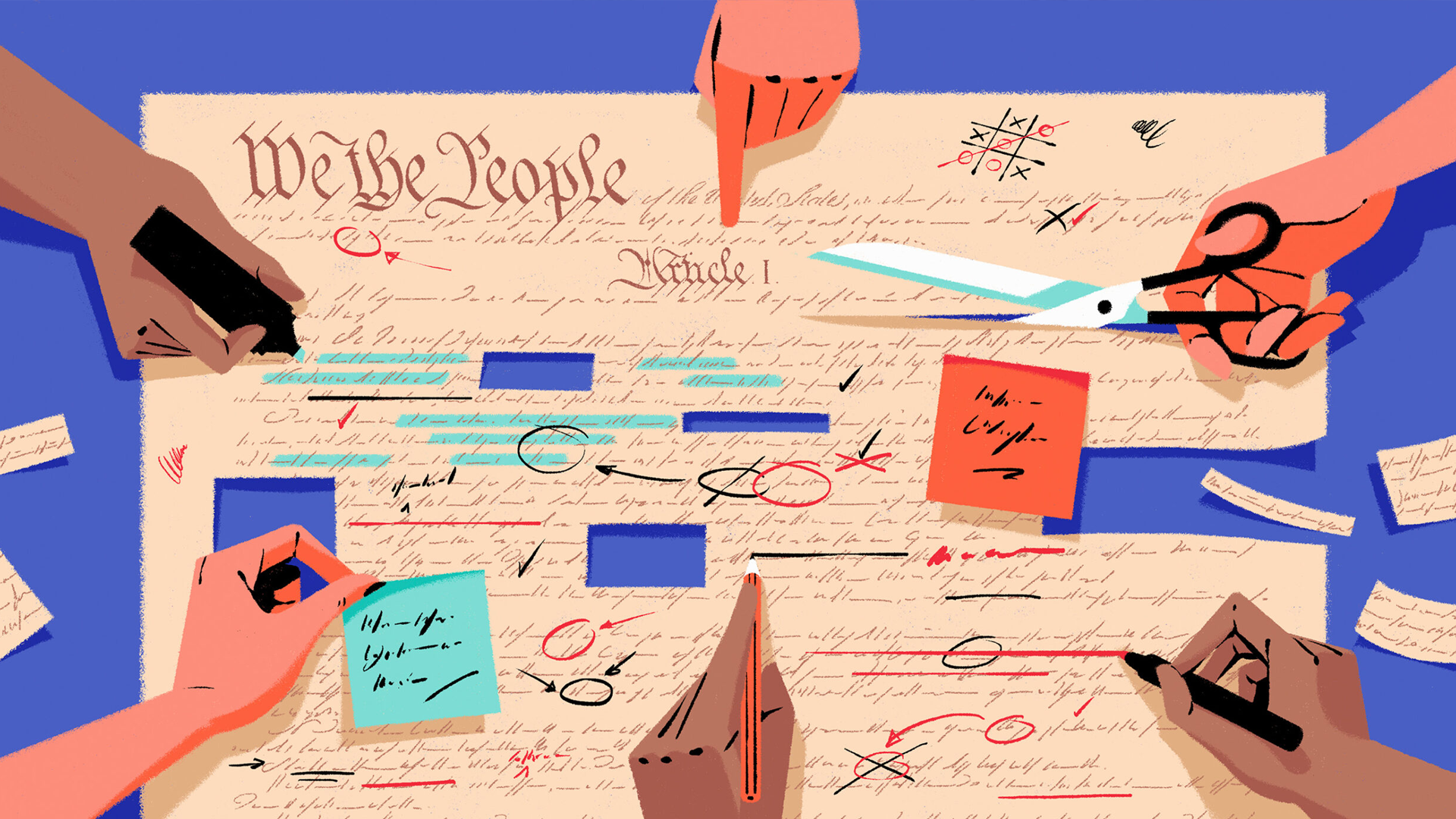Building a New Nation: Foundations of State and National Government

After the Revolutionary War, the United States faced the daunting task of building a functioning government.
The Dive
When the Treaty of Paris ended the Revolutionary War in 1783, Americans faced an entirely new challenge: how to govern themselves without a king. The Articles of Confederation, adopted during the war, created a loose alliance of 13 sovereign states. It sounded great in theory, maximum freedom for each state, but in practice it left the national government powerless to tax, regulate trade, or settle disputes between states.
By the mid-1780s, cracks in the system were showing. The nation was drowning in debt, soldiers from the war were unpaid, and uprisings like Shays’ Rebellion in Massachusetts revealed just how weak the central government had become. States were acting like independent countries, printing their own money, and even arguing over borders.
In 1787, delegates from across the states met in Philadelphia intending to fix the Articles but instead, they wrote an entirely new Constitution. This document created a federal system that balanced power between national and state governments, while also establishing three separate branches (legislative, executive, and judicial) to keep each other in check.
Not everyone was sold on the new plan. Federalists supported the Constitution, arguing that a stronger national government was necessary to unite the states and solve the country’s problems. Anti-Federalists feared it gave too much power to the federal government and lacked protections for individual freedoms.
North Carolina was firmly in the Anti-Federalist camp. In 1788, at its first ratification convention, the state refused to approve the Constitution without a Bill of Rights to guarantee liberties like free speech, freedom of religion, and the right to a fair trial. This refusal left North Carolina outside the Union for over a year.
Only after Congress proposed the Bill of Rights did North Carolina reconsider. In November 1789, a second convention voted 194 to 77 in favor of ratification, making it the 12th state to join the Union. The state’s hesitation reflected a broader national debate over how to balance liberty with the need for an effective government.
These foundational documents—the U.S. Constitution, the Bill of Rights, and North Carolina’s own 1776 state constitution—set the tone for American democracy. They enshrined principles like separation of powers, checks and balances, and federalism, but they also revealed the limits of equality at the time, with property requirements for voting and rights still denied to many.
Understanding this period is key to seeing how democratic ideals were forged, challenged, and expanded over time. The debates between Federalists and Anti-Federalists didn’t just shape the early Republic, they still echo in today’s arguments about the role of government and the balance between state and federal power.
Why It Matters
The struggle to create a government after independence reveals that democracy is never simple or static. The debates over the Constitution, the Bill of Rights, and the balance of state and federal powers established the foundation for American political life. North Carolina’s cautious approach reminds us that safeguarding liberty often means asking hard questions before handing over power, questions that remain just as relevant today.
?
Why did the Articles of Confederation fail to create a strong national government?
What were the main arguments of Federalists and Anti-Federalists?
Why was the Bill of Rights so important to North Carolina’s decision to ratify the Constitution?
How does federalism balance power between the states and the national government?
Which principles from the founding era remain most contested in modern U.S. politics?
Dig Deeper
How did a meeting intended to revise the Articles of Confederation lead to the new Constitution for the United States? Discover how a handful of men--sitting in sweltering heat and shrouded by secrecy--changed the course of history for America in 1787.
John Green teaches you about the United States Constitution. During and after the American Revolutionary War, the government of the new country operated under the Articles of Confederation. While these Articles got the young nation through its war with England, they weren't of much use when it came to running a country.
Related

From Articles to the Constitution
The Articles of Confederation got us through a revolution—but not much more. Weak laws, no executive, and constant in-fighting forced the Founders back to the drawing board. What came next? The Constitution.

Federalists vs. Anti-Federalists: The Battle That Built the Constitution
One side feared chaos. The other feared tyranny. Together, they gave us the Constitution—and the Bill of Rights.

Separation of Powers
The U.S. Constitution divides power among three branches—legislative, executive, and judicial—to prevent tyranny and keep government balanced.
Further Reading
Stay curious!

